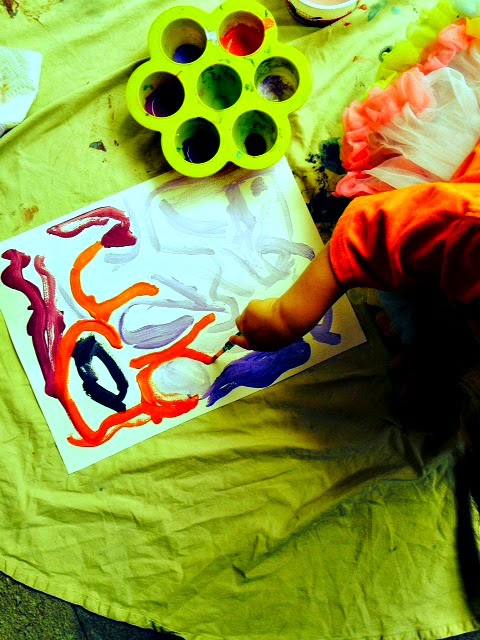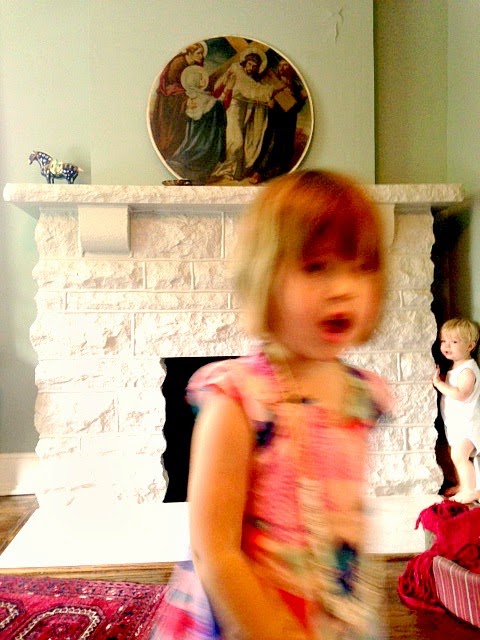In my last post I began by asking the question: “what is
education for,” or, to say it a different way: “what is the end of education.”
By the conclusion of the post, however, I determined that we cannot begin to
answer this basic question until we have answered yet another, even more basic
question, namely “what are people for?”
Every educational system, every curriculum, answers this
question, or rather works from some assumption (often unacknowledged) that answers
this question. In the same way every human policy, every law, every political
structure relies upon and implies some foundational philosophy: what is the meaning
of life? Why are we here? Who are we?
We, as individuals, answer this question as well. Even if we
have not explicitly acknowledged or addressed the question, we answer it with
every act, every choice.
Many of us never stop to question the "answers" we give. We never explicitly ask ourselves “what am I FOR?” And
many of us live easily from day to day, relying on the unspoken assumptions of
our peer-groups and society. But when we begin to raise our children many of
us stop short, shocked and confused, because, after all, we are meant to bring up these children to be…something. We have the responsibility to teach them…what?
How can we “raise” them if we have no idea what heights they were made for? How
can we “teach” them if we don’t know what they need to learn?
So. It must be answered.
What are people for? What makes us human?
It is an ancient question. Maybe the most ancient question.
It has been answered in diverse times by saints and sinners, philosophers and bar-rats
alike. And the answers have varied wildly. What makes us human? Language, free
choice, a capacity for worship, our ability to make art: these are just a few
characteristics that supposedly set us apart from the beasts. On the other
hand, some suggest that nothing makes us human, that “humanity” itself is a
meaningless category and there is no qualitative difference between a “human”
and an “animal.” Perhaps, they argue, the difference is one of degree but not
of kind.
I would, however, argue that such an argument falls flat to
most men and women of what Chesterton would call “common sense.”
Certainly there has been great consensus throughout history: something sets humans apart from other forms of life on earth. St. Thomas
calls us “rational animals,” because, if we are beasts, we are beasts capable
of stepping outside of our animal nature and questioning it, we are able to
define what “animal” means. We who exist within the material world are also able
to discern order within the material world. Unlike animals we not only perceive
phenomena, but we perceive relationship and causation within/between phenomena.
So far, so good. What else?
In his book Man’s Search for Meaning Victor Frankl writes
this:
“being human always points, and is directed, to something or someone
other than oneself—be it a meaning to fulfill or another human being to
encounter. The more one forgets himself—by giving himself to a cause to serve
or another person to love—the more human he is.”
Here Frankl insists that human identity is
not located in our ability to self-actualize, self-determine or “find
ourselves,” but instead in our capacity to serve.
Furthermore, the quote
suggests that our humanity is not found in isolation, but in relation. We are
defined by what—or who—we love.
So the first definition points to our ability to perceive
relation (between facts, within phenomena), while the second description points
to our ability to be in relation (with our world, with each other).
But let’s go even further.
As a Christians we affirm that—if we are people at all—then
we are people of relation, yes. But we believe furthermore that one original
relationship initiates and sustains all these other relations: humanity’s
relationship to God.
The Catechism tells us that humans were the only creatures that
God “willed for [our] own sake,” and that we alone are “called to share, by
knowledge and love, in God’s own life.”
I say it again: our identity is based in relationship, and a
relationship first and foremost with a Person. I am awed to recall that this
relationship is not just any relationship--not a contract, not a master/slave
dialectic--but a relation of love, compared in scripture to human passion, romantic
ecstasy. God calls us his “beloved.” He pursues each of us with yearning, calls
to us:
Arise, my beloved, my beautiful one, and come!
O my dove in the clefts of the rock, in the secret recesses
of the cliff,
let me see you/let me hear your voice,
for your voice is sweet,
and you are lovely.
And we, the beloved, respond with desire and delight beyond
words:
Let him kiss me with the kisses of his mouth!
More
delightful is your love than wine!...Draw me!
The great mystic St. Catherine of Siena meditates on this
mystery: “what made you establish man in so great a dignity?” she asks.
Certainly [it was] the incalculable
love by which you have looked on your creature in yourself! You are taken with
love for her; by love indeed you created her, by love you have given her a
being capable of tasting your eternal Good.”
We possess a being capable of tasting, yearning to taste,
this eternal Good. And I am always further amazed that this “eternal Good” is not some infinite yet impersonal force, but
rather a Trinity.
What does this mean? I am afraid that for many of us the term
has become only a dry and technical theological term. But what the Trinity
really means is this: when we seek deeply into the heart of reality we do not
find (abstract) Power, Might, even Goodness, but a communion of persons, a
community of love, and a family.
This is what the Catechism means when it says that the
Trinity is “the mystery of God in himself” and “therefore the source of all
other mysteries of faith, [as well as] the light that enlightens them.” It
means that not only humans, but reality itself is relational, in
relation—because the Creator himself is, in His own existence, in relation. !!!
So what, after all this, is the final end of man? The
Baltimore Catechism states it succinctly thus:
“The final end of man is to know, to love, and to serve
God.”
This statement includes and explains both St. Thomas’s and
Frankl’s descriptions of man: first, as one who perceives relation and second,
as one who exists in relation. For to “know God” is to know him in the order
he has made, and to “love and serve God” is to love and serve our neighbor.
And education? (Because that’s what we are supposedly
talking about, right?) What should education do—in light of this conclusion?
Education, therefore, should support the student as she
works to fulfill this threefold end:
To know God,
To love God,
To serve God.













